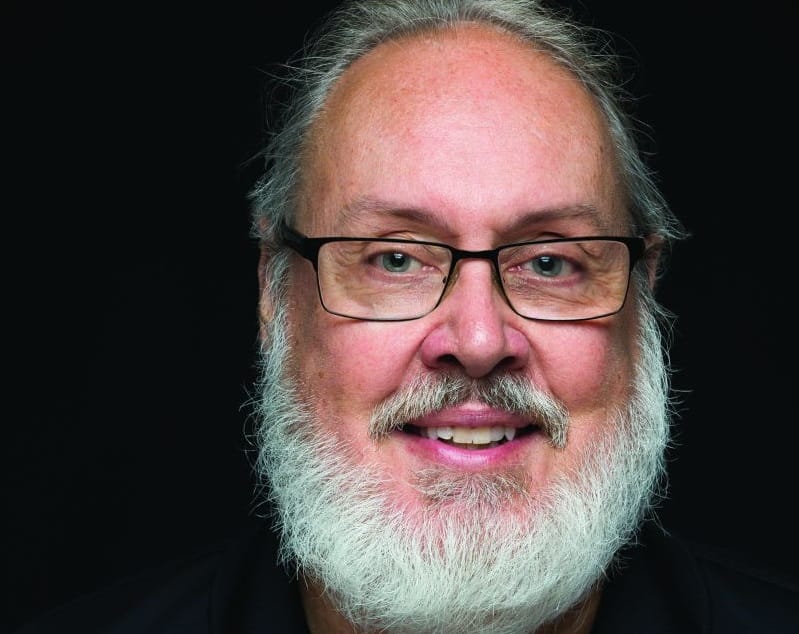Coronavirus Roundup: Extending a Pledge, ‘Yell Bloody Murder’ on Broadband Maps, SHLB Letter, Gigabit Libraries
Verizon Communications, AT&T, Comcast and Cox sere among the broadband providers that said on Monday that they had extended their commitment not to cancel service or charge late fees to customers who have been impacted by the coronavirus pandemic through June 30. In mid-March, the Federal Communicat
David Jelke

Verizon Communications, AT&T, Comcast and Cox sere among the broadband providers that said on Monday that they had extended their commitment not to cancel service or charge late fees to customers who have been impacted by the coronavirus pandemic through June 30.
In mid-March, the Federal Communications Commission said major wireless and internet providers had agreed not to terminate service for subscribers for 60 days. This pledge, including more than 700 companies that have agreed to the voluntary measure, would have expired in mid-May.
As reported in Broadband Breakfast on March 16, the three elements of the pledge include:
- to not terminate service to any residential or small business customers because of their inability to pay their bills due to the disruptions caused by the coronavirus pandemic;
- to waive any late fees that any residential or small business customers incur because of their economic circumstances related to the coronavirus pandemic; and
- to open its Wi-Fi hotspots to any American who needs them.
In an interview with FCC Commissioner Brendan Carr during Broadband Breakfast Live Online on March 19, Carr said that the date the pledge expired would be re-evaluated.
Last week, a group of 24 state attorneys general last week asked carriers to extend the voluntary commitment until August 11, reported Telecom Lead.
Doug Dawson advocates “yell bloody murder” about being left uncovered by rural broadband maps
A blog post by Doug Dawson, president of CCG Consulting, advocates that regions in the U.S. with paltry broadband connection who aren’t eligible for the FCC’s $16 billion of RDOF funding should make loud and vocal protest.
Dawson writes:
“If you have poor broadband options and you aren’t covered by this grant there is a good chance that you just got screwed. There are many millions of homes and business that don’t have good broadband that are not covered by this grant. That blame can be laid squarely on the FCC. The FCC is using information supplied by ISPs to define areas that are eligible for this grant. There are huge parts of rural America where the ISPs are falsely claiming to offer 25/3 speeds, and such areas are not included in this grant.
“The FCC knows they are using faulty data and they decided to move forward with these grants anyway. The areas covered by the RDOF grants don’t have good broadband, but there is an even larger geographic area of the country that should be eligible for federal grants that have been shut out due to the FCC never insisting on good mapping data from ISPs.
“If your neighborhood has poor broadband and isn’t covered by these grants, then you need to yell bloody murder to anybody and everybody. Complain to local, state and federal politicians. The fact is that if your neighborhood isn’t on these maps, or isn’t covered by a few other existing grant programs, then you are not likely to be getting broadband with federal grant assistance any time soon. You aren’t going to be alone and there are millions of other rural residents in this same situation – so join forces and shout until there is a solution.”
Schools, Health and Libraries Broadband Coalition advocates $5.25 billion for student broadband connectivity
The Schools, Health & Libraries Broadband Coalition on Monday sent House Commerce leaders a letter asking it to provide $5.25 billion in funding for student broadband in the next coronavirus relief package, and praised the Emergency Educational Connections Act of 2020, H.R. 6563, introduced by Rep. Grace Meng, D-N.Y.
The letter includes a cost analysis from Funds For Learning, documenting reasons for the need.
It also suggested that Congress add additional language to strengthen E-Rate funding by explicitly authorizing the FCC to continue to allow the program to fund devices and equipement for broadband at home, by permitting schools and libraries to use funding for broadband from schools and libraries, and require funding to be use for internet filters.
Broadband in Ghana, France, Georgia (United States) and from the Institute for Museum and Library Services
At the Gigabit Libraries webinar on Friday, April 24, Hayford Siaw, head of the Ghana Library Authority, shared his perspective on broadband connectivity in the West African Nation. The Authority had seen important progress in terms of numbers of libraries but was far from having one in every district of the country.
Other speakers included Crosby Kemper, director of the Institute for Museum and Library Services, who discussed $50 million allocated under the U.S. CARES Act for libraries, Julie Walker, the state librarian of Georgia, and Raphaelle Bats, from ENSSIB in France.
The next Gigabit Libraries webinar will be at 11 a.m. ET on Friday, May 1. Broadband Breakfast is Media Sponsor of the series.









Member discussion